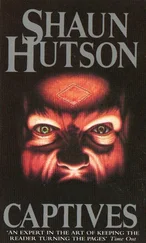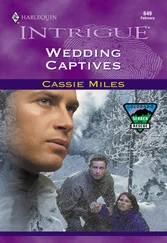Norman Manea - Captives
Здесь есть возможность читать онлайн «Norman Manea - Captives» весь текст электронной книги совершенно бесплатно (целиком полную версию без сокращений). В некоторых случаях можно слушать аудио, скачать через торрент в формате fb2 и присутствует краткое содержание. Год выпуска: 2014, Издательство: New Directions, Жанр: Современная проза, на английском языке. Описание произведения, (предисловие) а так же отзывы посетителей доступны на портале библиотеки ЛибКат.
- Название:Captives
- Автор:
- Издательство:New Directions
- Жанр:
- Год:2014
- ISBN:нет данных
- Рейтинг книги:3 / 5. Голосов: 1
-
Избранное:Добавить в избранное
- Отзывы:
-
Ваша оценка:
- 60
- 1
- 2
- 3
- 4
- 5
Captives: краткое содержание, описание и аннотация
Предлагаем к чтению аннотацию, описание, краткое содержание или предисловие (зависит от того, что написал сам автор книги «Captives»). Если вы не нашли необходимую информацию о книге — напишите в комментариях, мы постараемся отыскать её.
Captives
This is a moving account of a country shaken by communism and anti-Semitism and haunted by recent atrocities, from "a distinguished writer whose vision of totalitarianism is close to Kafka's cloudy menace, universal yet internalized" (Richard Eder,
).
Captives — читать онлайн бесплатно полную книгу (весь текст) целиком
Ниже представлен текст книги, разбитый по страницам. Система сохранения места последней прочитанной страницы, позволяет с удобством читать онлайн бесплатно книгу «Captives», без необходимости каждый раз заново искать на чём Вы остановились. Поставьте закладку, и сможете в любой момент перейти на страницу, на которой закончили чтение.
Интервал:
Закладка:
This stubbornly repeated phrase seemed like a sign of madness. Palms unclasped, Caba’s hands opened upward, showing him distressed and powerless in front of this strange mumbling.
— I can’t stand typewriters anymore.
The superior led his colleague to the door and raised the fine, pale fingers of his left hand to the doorframe, where he leaned his shoulder and head in a sad gesture.
Static finale: the left hand leaning against the doorframe like a thoughtful and frail branch.
• • •
Just like another time. The massive desk covered with a thick sheet of glass. The sentence settles over the glass rectangle, over the pale, manicured hands with the palms motionlessly waiting on the gleaming glass. Just like that other time.
Back then, he was counting banknotes. He had lifted his eyes and recognized a forgotten colleague. His gaze suddenly brightened the room. The air vibrated with his cordiality. You remained near the door, beside the unknown newcomer you’d accompanied to meet the chief, directing him toward the window at the end of the room, and then remaining forgotten near the door. Filling the room with words, Sebastian Caba had started exercising his amiability right away. The unshaven guest in a dusty blue shirt with traces of whitewash or lime was struggling — shy and awkward. Caba’s hands waved through the air, practically aflame, encircling the guest, weakening his opposition, and asking the questions, while his former colleague brought his hand to his throat, a defensive reflex.
Near the door, something rustled, like a cat’s hair. The stranger turned, amazed, and only then did he look carefully at the features of the girl who had brought him there, and your wiry hair seemed almost metallic.
Caba had the hands of an adolescent: thin, velvety — as though they’d never perspired — protected from cuts, eczema, or chilblains, untouched by warts or boils. He shook other people’s hands thoughtfully, slowly, patiently. It was perhaps the conquerors’ first surprise and his first triumph in the class of timid provincials where he’d appeared. The class followed him with their eyes, enamored from the start, and when he took his seat, his gaze lingered on the classmate right in front of him. Perhaps he suddenly wanted an ally, or believed himself to be discovered, endangered.
Now, he had raised his left hand, his pale fingers contrasted against the coffee-colored doorframe. He bowed his head, shoulders, and body while remaining dreamily in the doorway, unmoving, as in a picture, watching his subordinate rush down the stairs.
A chill ran down your spine. Your wiry hair rustled, as it had at the stranger’s first appearance, when he brought his hand to his throat, in defense. The gesture shouldn’t have ever been repeated. . No one had the right to mimic the well-known gesture of your dead father, and no one had the right to record him. You had imagined — over and over, too many times — the moment of triumph when some stranger would involuntarily bring his hand to his throat and you would be able to watch — uncaring, apathetic, able to live again among the living. When the stranger suddenly brought his hand to his throat, you grew pale. Your delicate palm rubbed against the whitewashed wall, and the fine plaster dust stuck to it.
You went on gazing at the stranger — frozen, with his hand on his throat. You pressed your hand against the wall, hoping this could somehow save you, while listening to the galloping of a hostile future — that moved along the length of the cool corridor — the specter of an awaited, unwanted, unknown, beloved executioner from whom you did not know how to flee in time.
You went on gazing at the stranger. You gazed long and far away, chased back into the mountains that kept refusing refuge.
• • •
You will run toward the glass building. You’ll fling your jacket over the back of a chair. You’ll see if he’s alive, if he’s somehow still there — the man with the bandage around his neck that you spotted from a crowded bus. You were trembling, eyes wide with fright. You looked bewilderedly at the back of a blue shirt, at the wide strips of rustling tracing paper. You wanted to imagine and then absorb an image able to chase away the phantom that had sprouted in the bus window. But the recently hired engineer was there at his drawing board.
He’ll be there, and you’ll be there on other mornings. You’ll talk and listen. And you’ll receive a ticket to the movies: the danger will come one step closer. You’ll have to comprehend everything that’s incomprehensible, everything that can’t and shouldn’t be understood. And you’ll only ask once, hastily and timidly:
— You were a child during the war, weren’t you?
You won’t expect an answer. And there will be a movie theater, a summer afternoon, and on screen, the border area where the wanderer could no longer escape. Daily war stories flow from the movie screen: smokestacks of crematoria, skeletal bodies, nocturnal hunters, barbed wire, sentinels and executions, howls and hatred, beasts, eyes wide with fright: archives against forgetting, films viewed in respectful silence. The average moviegoer doesn’t want to know more about the war. The people who sit in the dark theater all the time want entertainment. There’s a sob, a squeal from a girl with a short skirt. Ravished in the dark hall, tonight she’ll expend the pain in the frenzy of some dance hall. . When the girl quiets down, an old man dozing in his seat lets out a smothered cry — woken by the thundering of cannons that remind him of the mud of two forgotten wars.
— You were a child during the war, weren’t you?
Blond, thin, and from another era, the boy on the screen looks at himself in the mirror of the well. His mother’s laughter suddenly bursts into the canon peal of water, and long, lonely horses eat apples by the seashore.
The question went unanswered. Your date only wanted to know as much as those cinephiles of summer afternoons, gladly going to the waters of Lethe to forget. He had seen people buried alive and resurrected, detached from despair and hurled into depravity, impatient to touch each other, to rub against each other, to enter each other.
Obsessed once, as he’d said — long ago, in an ancient and forgotten adolescence — by his own capacity for alienation, he’d dashed through his youth, inventing dilemmas and disquietudes for himself, gathering obsessions that could occupy his need to understand — what should be and what shouldn’t, what is and what isn’t — and he doesn’t want to know anything more about the war, he doesn’t want to know it . Words travel with difficulty, detouring around him so that nothing can reach him: slave to oblivion — which shames, humiliates, and soothes — its trophy and glory.
How could he be like the other: the obsessed, the prisoner, and the master of memory, swinging in the past’s vertiginous pendulum, imprisoned by the ravaged waters of impossible forgetting?
He’ll climb the stairs behind you on a summer evening. The door will remain open. Someone should close it behind him. His hand will seek the handle and he will pull, slowly, fearfully, as though anticipating an ambush. He’ll twist the handle till it can go no farther. The bolt should enter the slot unheard, the door should remain stuck in the frame. Almost closed. . pulled slowly, the door nearly flush with the edge. . yet powerless to finish the motion, aligned with the doorframe, noiseless, in perfect silence, without disturbing or awaking. . tiptoeing, eyes lowered to the ground, fingers gripping the handle. . don’t move too suddenly, don’t slam. . everything should flow as silently as a dreamless sleep. Closing the door, the same way each time: frightened, cautious, with humility. . startling at any sound of a slammed door, shaken by the first loud noise, by any powerful gesture. The humiliation of silence, the humiliation and habit of forgetting, the humiliation driven to the point of forgetting. Noiselessly, the door pulled, slowly, in terror, stuck to the wooden doorframe — an interrupted, unfinished, fearful gesture.
Читать дальшеИнтервал:
Закладка:
Похожие книги на «Captives»
Представляем Вашему вниманию похожие книги на «Captives» списком для выбора. Мы отобрали схожую по названию и смыслу литературу в надежде предоставить читателям больше вариантов отыскать новые, интересные, ещё непрочитанные произведения.
Обсуждение, отзывы о книге «Captives» и просто собственные мнения читателей. Оставьте ваши комментарии, напишите, что Вы думаете о произведении, его смысле или главных героях. Укажите что конкретно понравилось, а что нет, и почему Вы так считаете.












